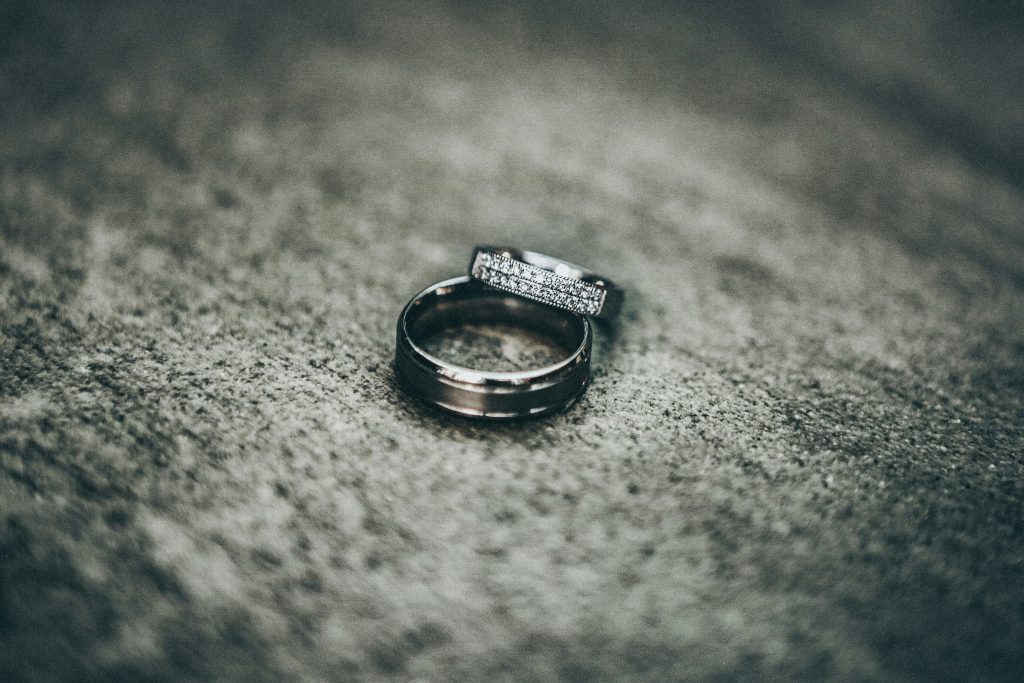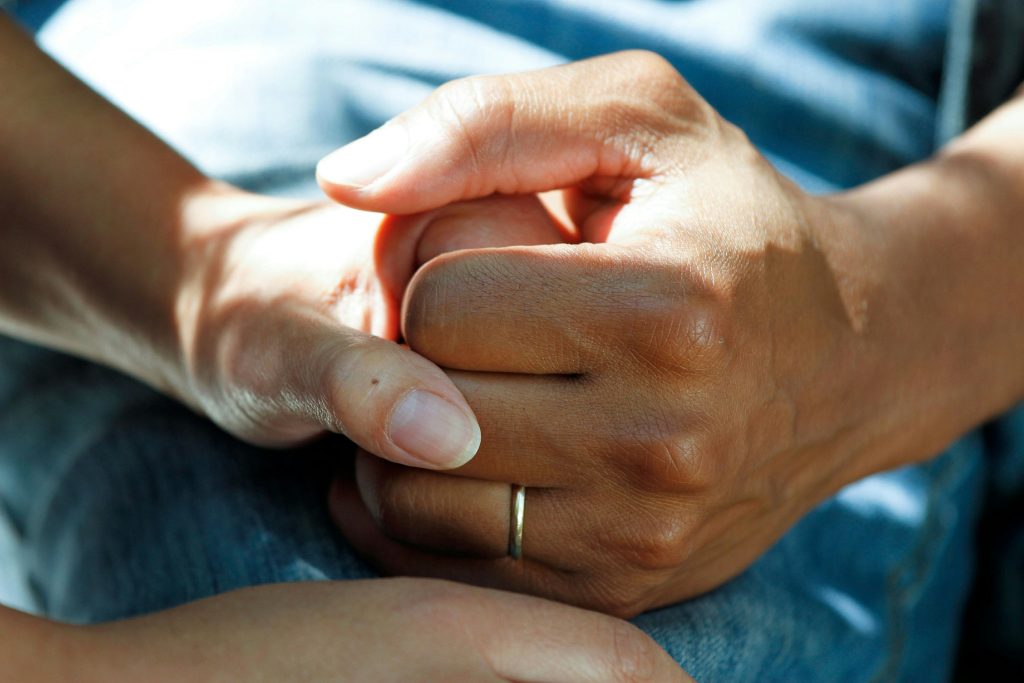Free Wills Month 2024 – When is the best time to make a will?
Free Wills Month takes place twice a year, in March and October. People over the age of 55 can get a simple will written or updated for free. The scheme is funded through a selection of charities. At Dorothy House, we offer the free will service all year round to anyone over 18.
When you register for the free wills service, you will be asked about your wishes which will take about 15 minutes. The experts will then check your will and let you know within three days if any tweaks need to be made. Then you can just print off and sign your will with witnesses to make if legally binding.
A simple will sets out who you wish to leave money or property to and what happens if they die before you. It also includes who should look after any children under 18, and who you would like to sort out your estate and carry out your wishes (your executor).
You can also choose to leave a gift in your will, of which there are different kinds:
- A residuary gift is a percentage or share of your estate, for example 25%, so you don’t need to worry if your financial situation changes. The value is inflation proof and calculated once any taxes, costs and other gifts have been paid.
- A pecuniary gift is a fixed amount of money, for example £10,000. However, this would lose value over time due to inflation.
- A specific gift, such as a house, stocks & shares or jewellery.
Leaving a gift in your will to a charity can make a huge difference to those in need.
When is the best time to make a will? For most of us the answer is – right now!
It may help to view making your will as a basic, but essential administrative step. Something that adults need to do along the same lines as insuring their car or getting a mortgage.
Did you know?
Most people who are making their wills aren’t unwell – they just want the peace of mind of knowing that their estate passes as they want it to, in the most tax efficient manner available, and in a way that makes things as easy as it can be for those left behind.
Most people only need to do one or two wills during their lifetime.
You need to have capacity to be able to make your will. Having capacity to make your will means that there is no doubt that you understand that you are making your will, you are aware of what you own and the people you should have regard to. If you become unwell so that this capacity is in doubt it may then become too late for you to make your will at all.
Leaving it to the last minute may make a will easier to challenge if anyone is unhappy about the will. Therefore it is best to “bite the bullet” and get your will done. Then you really can think no more about it!
Do I need a will at all?
Without a will, the rules that determine what happens to your estate apply. These are called the rules of intestacy.
If you are single, widowed or divorced without children everything passes to your parents, or if they have gone to your siblings, then to nieces and nephews and wider family.
If there is no wider family your estate goes to the Crown.
If you are married without children everything passes to your spouse. For many couples this works well, though what happens on the second death? If there is no will under the intestacy rules everything would pass under the intestacy of the one who lived the longest. That would mean the first to die’s family or chosen beneficiaries would not get anything.
If you are married with children without a will your moveable “stuff” and the first £270,000, and half the remainder passes to the surviving spouse. So if your estate is beneath this the spouse gets everything. Anything over this one half passes to the children the other half to the spouse as well. If the estate is a larger estate, not having a will leaving your estate to the spouse on the first death may mean losing out on tax allowances.
Can I make my own will?
Yes, as long as you are confident that the execution of the will complies with the Wills Act 1837. If it does not, the will won’t be valid. There are many misconceptions and misunderstandings surrounding wills so most people prefer to take advice on what is probably one of the most important documents they will ever sign. If any of the situations below apply to you it makes sense to take advice.
Do any of the following apply to you?
I am married. If you have a simple will leaving your estate to your spouse then you shouldn’t have to pay any inheritance tax on the first death. If you have a larger estate with no will, a share may go to the children on the first death, which may be taxable and wouldn’t have been if it had gone to your spouse. Both your wills need to provide for what happens if you both died.

I am not married but I am in a long term relationship. The intestacy rules do not recognise long term partnerships or cohabiting couples. Without a will your survivor may be left vulnerable, as potentially the first to die’s estate could pass back to their original family. Therefore, for unmarried couples, having wills in place is even more important than for married couples. A legal professional will also discuss the inheritance tax position of being an unmarried couple. There is also a possible impact on your pension. Legally a civil partnership is the same as a marriage.
I am single but I don’t want my whole estate passing to my parents or if they have died, to my siblings equally. Everyone is different and many adults want to give more thought to their legacy. They want to benefit friends, younger people or charities that are meaningful to them. Some want to pass their estate on to nephews and nieces rather than back to older generations, so their estate goes where it is needed and minimises Inheritance Tax. If there are no relatives making a will it is essential to ensure charities or friends benefit, otherwise your estate will be held by the Crown.
I am married or in a relationship and I want to make sure my children inherit my estate even if my surviving spouse or partner got married again or made another will. If you have a simple will that leaves everything to the survivor, it is easier for the survivor on the first death as the level of administration is minimal. They are also free to then use the whole estate as they see fit. It will be easier for them to re-mortgage the house or enter into an equity release scheme. Many couples leave the whole estate absolutely to the survivor and that is the right choice for them. These are often called “mirror wills” because both the couples’ wills say the same so the outcome is the same no matter what the order of death.

However, there are downsides to making mirror wills. Leaving your whole estate to the survivor means the survivor owns the whole estate absolutely. There is nothing to stop the survivor making another will and leaving the whole estate to someone else (their own children for example in a blended family, leaving out the first to die’s children).
If the survivor got married again, their will is cancelled out by that second marriage. If they did not realise this and did not do a new will after the new marriage and then died, their new spouse takes a large share of the estate (see the intestacy rules section above). Their children would get a smaller share and if there were step children from the first to die, they would not get anything at all in this scenario. If the survivor needs long term care, the whole estate (bar £23,000) is available for the survivor’s care.
For these reasons some couples choose to leave the first to die’s share of the estate on a trust so that the first to die’s estate is available to the survivor to use and enjoy during their lifetime, but on the second death the first to die knows that their share of the estate will pass to their own children. The first to die’s share of the estate never actually legally transfers to the surviving spouse, but remains held under the first to die’s will. These wills do provide protection for the children of the first to die, as well as ensuring that the surviving spouse or partner can carry on as before, though there are disadvantages to these wills as well. Each couple needs to be properly advised as to what is the right will for them and takes into account all the surrounding circumstances.
Married couples need to understand that although they can leave their spouse out of a will or not provide for them, a spouse could then make a claim on the estate and would be likely to succeed. So, it is important that the will does properly protect the surviving spouse. If you are planning to marry in later life and you have children, it is important to consider the rights the spouse will have after marriage.

I made my will but I have since got married. A wedding or civil partnership automatically revokes any existing will. This can catch many people out. It is different if a will is made “in contemplation” of marriage to a named person. In this case the will won’t be revoked if you then marry that person, but without this wording then it would be revoked. If you are an unmarried couple who may get married, a legal professional will ensure your will would not be revoked by your later marriage to each other.
I am a parent of children, teens or young adults. If you don’t have a will, your children inherit absolutely at 18. Most people think this is too young and too great a responsibility for an 18-year-old. Most parents choose to leave their estate on a trust so it is protected for the children to inherit when they are in their twenties. The trust can be managed by family members or friends that the parents trust, or professionals can be appointed. This way your estate is protected for your children and it is less likely to be frittered away by a young person who then regrets doing so in later life.
If you are a parent of a child who is under 18 you most likely have parental responsibility. If there are no adults with parental responsibility, the Local Authority has a duty of care to ensure children under 18 are looked after. If both parents have died it is simpler if the parents have nominated who they would choose as their guardians in their wills. Assuming the chosen guardians are appropriate and are willing and able to step in, this is likely to be what would happen.
Some clients give more thought to this and leave letters of wishes to be read with their wills, guiding their trustees and guardians as to how they would want their children to be looked after and the trust for them managed. Often there are family members who might expect to be guardians and would put themselves forward to be so, but the parents have good reasons for ensuring this does not happen.
I want to ensure that a particular person that I trust is appointed as my executor and trustee. If you don’t have a will, family members may apply for letters of administration so they can manage your estate in accordance with the intestacy rules. If you have a will, you can choose who you would like to do this. You can choose the best person for the job, and you can put in substitutes if they carry out the resposibility for any reason. You can appoint beneficiaries as your executors and trustees if you like. Many people think this is not allowed, but for many families they are best placed to act. Some people prefer to appoint professionals either to make things easier for their families or to ensure there is (and that there is seen to be) a fair administration of the estate to minimise the risk of arguments or claims.
I am supporting someone, including letting someone live in my house. In England you can leave your estate to whoever you choose. However, there are certain categories of people that can make a claim on your estate if they consider they have not been properly provided for. Anyone you are supporting before your death could therefore fall into this category. Some people would stipulate in their wills that they would give such a person a legal right to live in their house for a fixed time for example, then, when that ends, the house reverts to their children or other beneficiaries but in so doing they have provided reasonably for the person they were supporting at their death.

My beneficiaries are vulnerable or on benefits. It may not be right for a beneficiary to be given their share of your estate absolutely on your death. They may need their inheritance to be managed by someone for their own benefit. For some beneficiaries suddenly inheriting may be detrimental. A legal professional will be able to advise on how best to leave the whole, or part of your estate on a vulnerable person’s trust. There are tax implications, so professional advice will be needed.
I am leaving out someone who might have expected to have been included in my will. In England and Wales people are free to leave their estate to whoever they choose. They can leave everything to charity if they wish. However, there are certain categories of people that could make a claim on the estate if they consider they have not been properly provided for in the will. Those people would need to bring a claim and it will be for the Court to decide if the claim succeeds or not; each case is looked at on its merits.
There have been cases in the last few years that have indicated that self-supporting adult children who are left out of a will are less likely to succeed in a claim. Anyone you were supporting at your death, your spouse, a minor or vulnerable child, anyone you promised anything to and that they relied upon would have a stronger claim. A legal professional will discuss the best way forward. You may be advised to write a letter setting out your reasoning for leaving the person out, which is to be read with the will, or to leave the person a smaller share to minimise the risk of them making a claim in the first place.
I own a business. You may want to leave your business to your business partner. Or, you may want to ensure that your business is passed on to your spouse in a tax efficient manner to ensure that any business property relief from Inheritance Tax is taken into account. It is important to know that there may be company documents that determine what happens to your share of your business on death that would take priority to your will.
I am divorced or separated. If you are separated but not legally divorced (so you do not have your decree absolute), it is very important to update your will. If you died in this “in between” stage, you are still legally married so your spouse would inherit either under your existing will or under the intestacy rules if you did not have a will. Once you are divorced, any will you already had in place remains in force, but is read as if the former spouse had died.
Most couples want to revisit their wills on divorce to ensure they properly reflect their new circumstances. It is very important for a newly divorced person to appreciate that if they got married again that wedding or civil partnership would revoke their will and they could potentially disinherit their children.
I have made significant gifts to one child but not the other. Some parents use their wills to ensure that significant gifts made to one child but not another during their lifetime are equalised. It is possible to put the estate into a flexible trust and to do a letter of wishes so that any further gifts can be taken into account.

I own property abroad or may inherit property abroad. Depending upon your circumstances, you may be advised to do a separate will in the jurisdiction where the property is located. If you do a later will in another country, it is very important it does not unintentionally revoke your English will. It may be appropriate to include the foreign property under your English will, particularly if it is in Europe and you are domiciled here. Your legal advisor can discuss this with you.
Author: Lucy Langley, Bath Wills
Further advice
Whilst it is always best practice to seek the advice of a legal professional when you are drafting your will, there are other options besides seeing a solicitor or will writing professional. For example: you can create a will online, buy a will writing pack or even have a telephone will consultation. These are all valid options which can fulfil your needs. We advise that you review all your options in order to make an informed decision that is right for you.
Our partnership with Beyond
We’ve partnered with Beyond, the UK’s leading online will specialist, to offer you a safe and easy tool for creating a free online will. Recommended by Trustpilot, we are also pleased to work with Beyond and their free telephone will service which bridges the gap between an online will and face to face appointments. Visit our free wills page here to learn more and retrieve your FREE Dorothy House discount code. For information on leaving a gift in your will, visit our page here.
- Share this page:
- https://www.dorothyhouse.org.uk/?p=97295
